Since May 31, Graduate Students United–United Electrical (GSU-UE) and the University have been negotiating a union contract that has the potential to redefine the relationship between graduate students and the University.
The two sides have reached tentative agreements on nearly all of the non-economic terms of their first union contract. However, GSU-UE and the University have yet to agree on a single economic proposal or settle the specifics regarding non-discrimination policies, according to the Union’s bargaining tracker and members involved in negotiations.
Representing graduate students is lead negotiator Kimberly Lawson from United Electrical (UE), the national union with which GSU-UE is affiliated, and members of GSU-UE’s bargaining committee. The bargaining committee is composed of 25 members elected by each academic division.
Lawson is also leading negotiations with Northwestern University on behalf of the Northwestern University Graduate Workers, which is also affiliated with UE.
Negotiating on behalf of the University is Anna Wermuth, a vice chair in the Labor & Employment practice at law firm Cozen O’Connor, and a group of senior University administrators. This group includes Vice Provost for Academic Appointments and Graduate Education Jason Merchant, Assistant Vice President of Human Resources Brett Leibsker, and Assistant Provost & Executive Director of UChicagoGRAD Administration and Policy Beth Niestat.
Wermuth has extensive experience in negotiations between universities and labor groups. She led the campaigns in response to unionization drives among non-tenure track faculty at a number of universities, including UChicago. She also represented Northwestern in its fight against a unionization effort among football players.
After 11 meetings, the latest of which was on November 2, GSU-UE and the University remain deadlocked on significant aspects of the contract. When union contracts are being negotiated, the terms of the contract are classified as either economic or language proposals.
Language proposals refer to terms in union contracts that define all non-monetary terms. They include conditions on severability, workload, discipline, and health and safety. GSU-UE has secured significant concessions from the University on language proposals.
Among the concessions was a commitment by the University to not use the academic discipline system for employment-related issues.
“One of the issues that hurt our members a lot is that the University and supervisors were using academic probation as a tool to fire or discipline workers when the issue may have been employment-related and not academic-related. We have secured a clause that says that academic probation may only be used for academic matters,” said Valay Agarawal, a member of GSU-UE’s bargaining committee, in an interview with The Maroon.
One of the biggest wins for GSU-UE was a union shop clause, which requires all current and future graduate students to become due-paying members of the union or pay an agency fee to GSU-UE. According to Agarawal, annual turnover in the bargaining unit is consistently around 20 percent as graduate students complete their programs and new students matriculate. Without a union shop clause, GSU-UE would have needed to ensure that all new graduate student employees signed union cards, which would have been a major endeavor.
As of the most recent negotiating sessions, there is no tentative agreement on the equal employment opportunity and non-discrimination section of the contract.
GSU-UE is seeking to add socioeconomic status, political affiliation or belief, family status, immigration status, citizenship status, and medical condition as specified protected classes but has faced pushback from the University.
Another issue of contention within the section is the definition of abuse of authority. GSU-UE is seeking to codify a specific definition while the University wants to continue using the definition in the University Grievance Policy for Graduate Students, which the University may amend unilaterally.
“If [the University says] that the abuse of authority definition can change, it would basically render any process worthless as they can change a policy on a whim,” Agarawal said.
Despite progress on the language proposals, negotiations have been slow regarding economic proposals.
Economic proposals are elements of the contract that would directly cost the University money. They include proposals on compensation, health benefits, and retirement plans. Among GSU-UE’s demands, which it presented on October 17, are an increase in the minimum Ph.D. stipend from $37,000 to $45,000, a 6 percent annual raise for the duration of the contract, dental and vision coverage, and a dependent care stipend.
“They rejected two articles and many sections of other articles. Whatever they passed us back was status quo, or worse than status quo on all of the articles that they returned to us, which was extremely insulting and seems like stalling behavior,” Agarawal said.
However, the University views the progress made so far in a very different light. In a statement to The Maroon, the University commended the progress made so far and expressed optimism.
“[The headway made] represents encouraging progress in a relatively short amount of time in the context of other union negotiations. In recent weeks, the GSU-UE team submitted its first set of economic proposals. We are grateful for the GSU-UE team’s engagement, and look forward to negotiation on the economic proposals to reach a contract.”
GSU-UE is also pushing for “community wellness” terms in its contract. Those include a demand that the University match the union’s donations to the Hyde Park and Kenwood Hunger Programs run by the Hyde Park Union Church and that the University publicly disclose a breakdown of its Operating and Capital Budget every year, including sources of funds, partnerships, investments, and department allocations.
When asked whether GSU-UE had plans to strike, Agarawal said it was not up to union leadership.
“Bosses are the best organizers. The fact that we go or do not go on a strike actually just depends on the University. If they want to come to the bargaining table with serious proposals, maybe a strike won’t happen.” He went on to add, “If the boss is organizing our members enough that they are willing to go on strike, the strike will happen.”


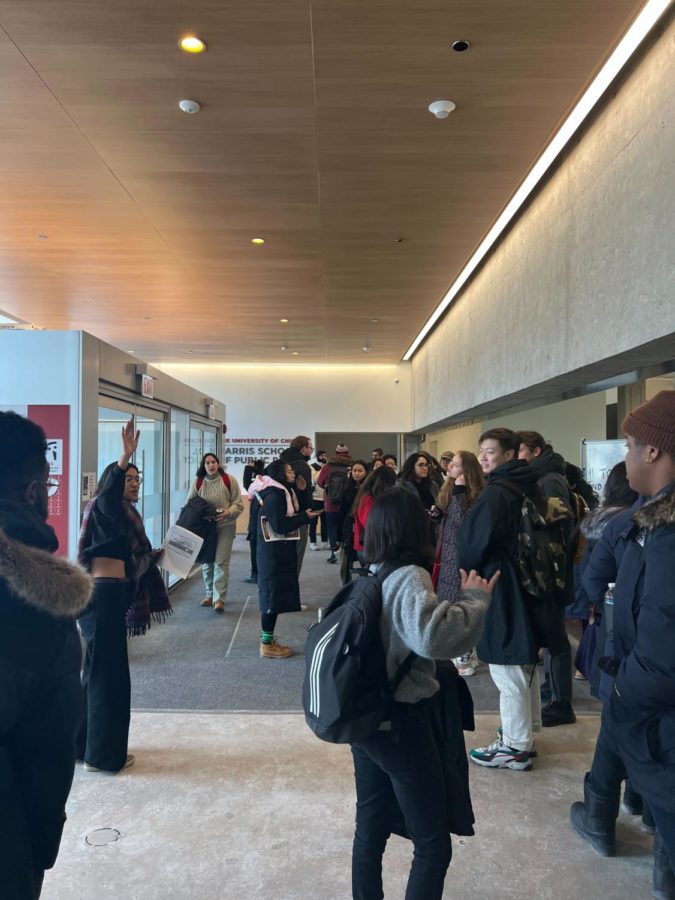








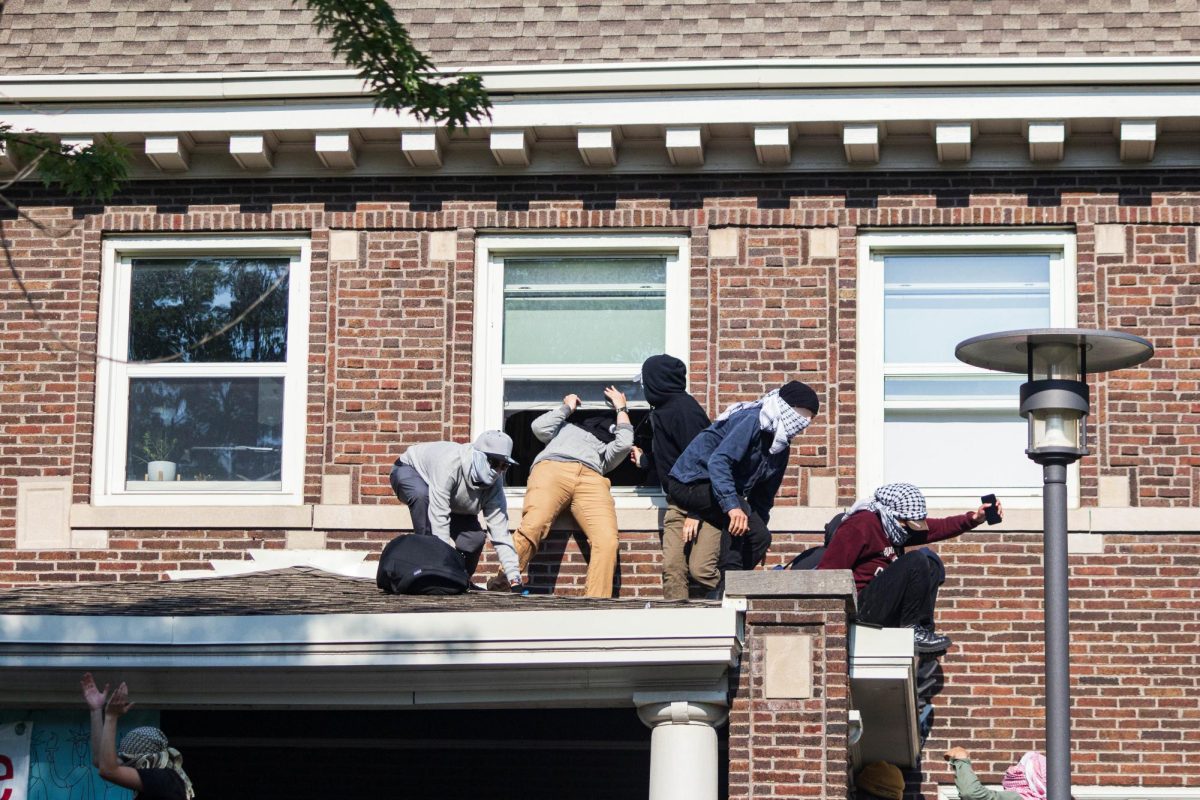
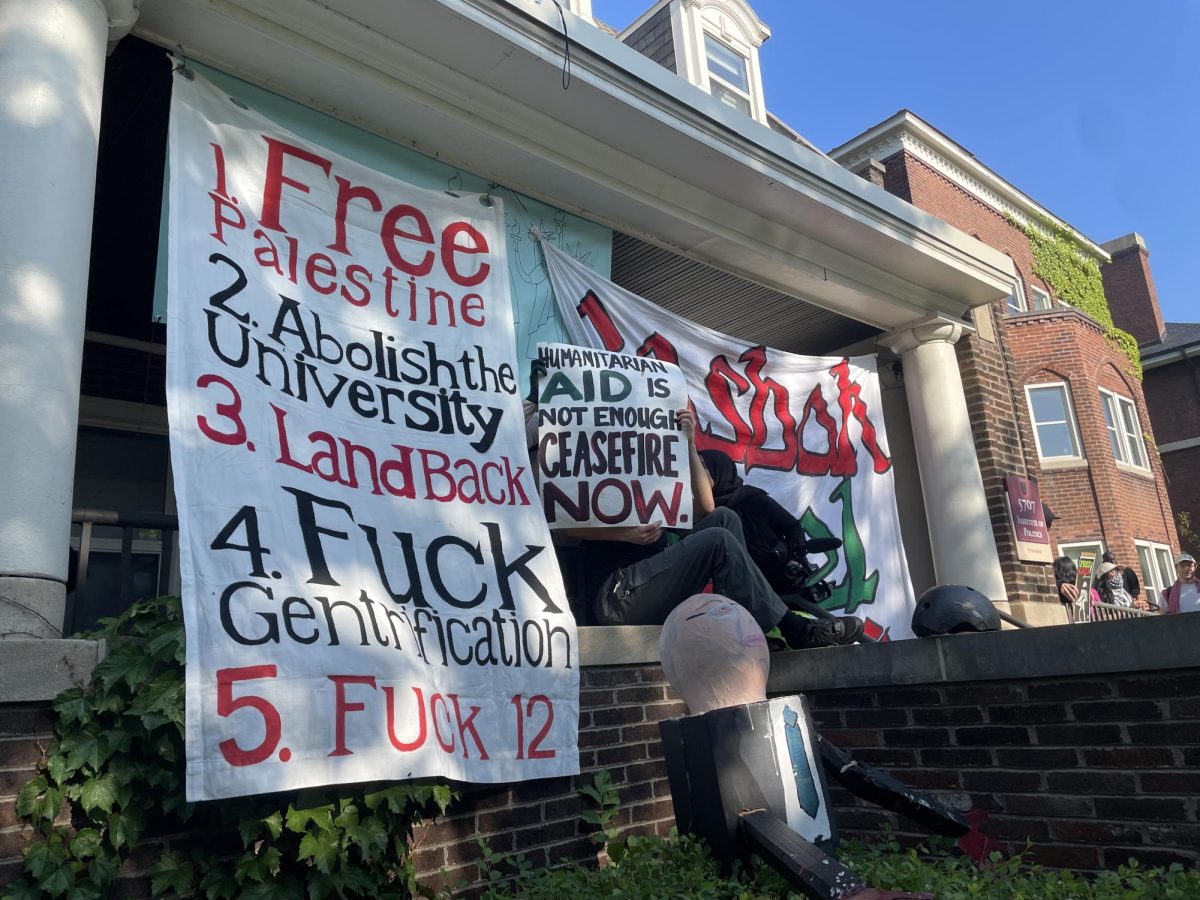
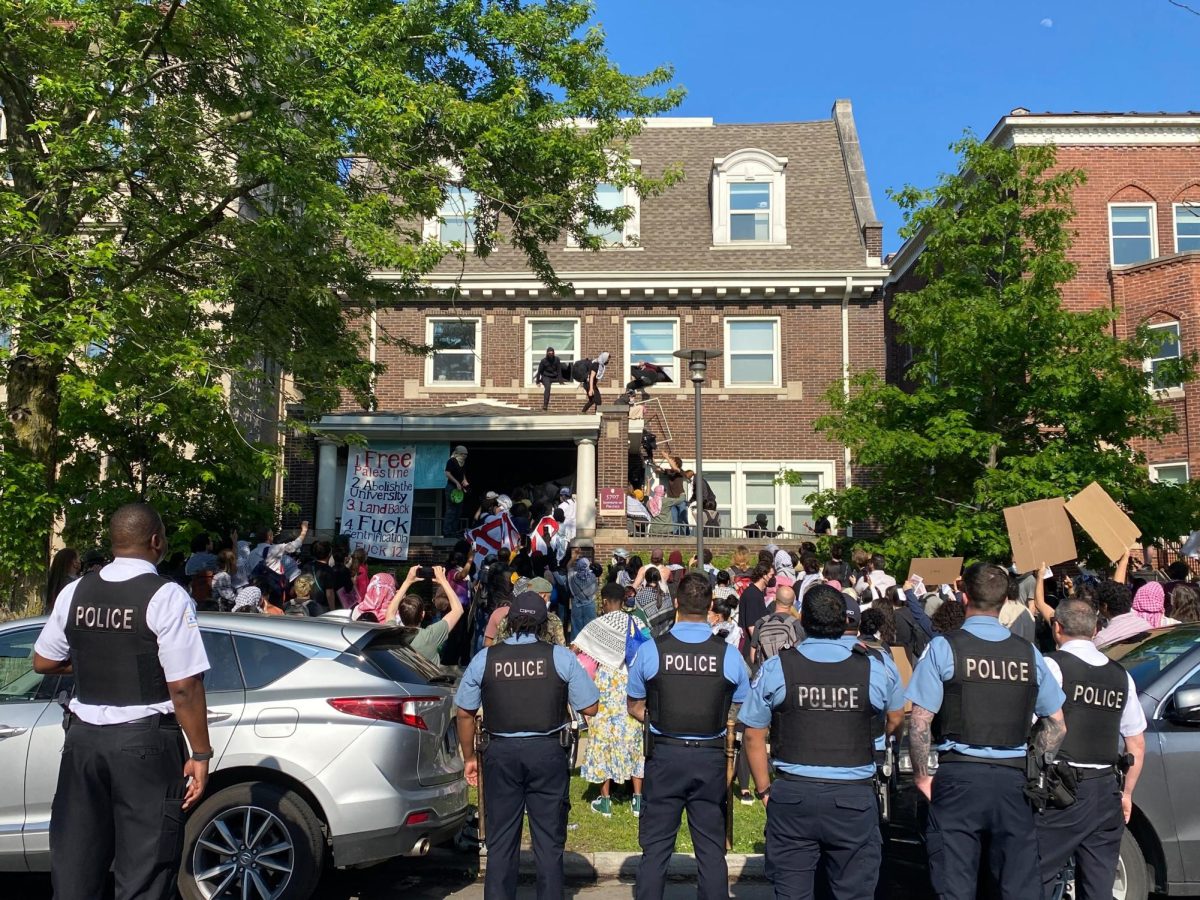
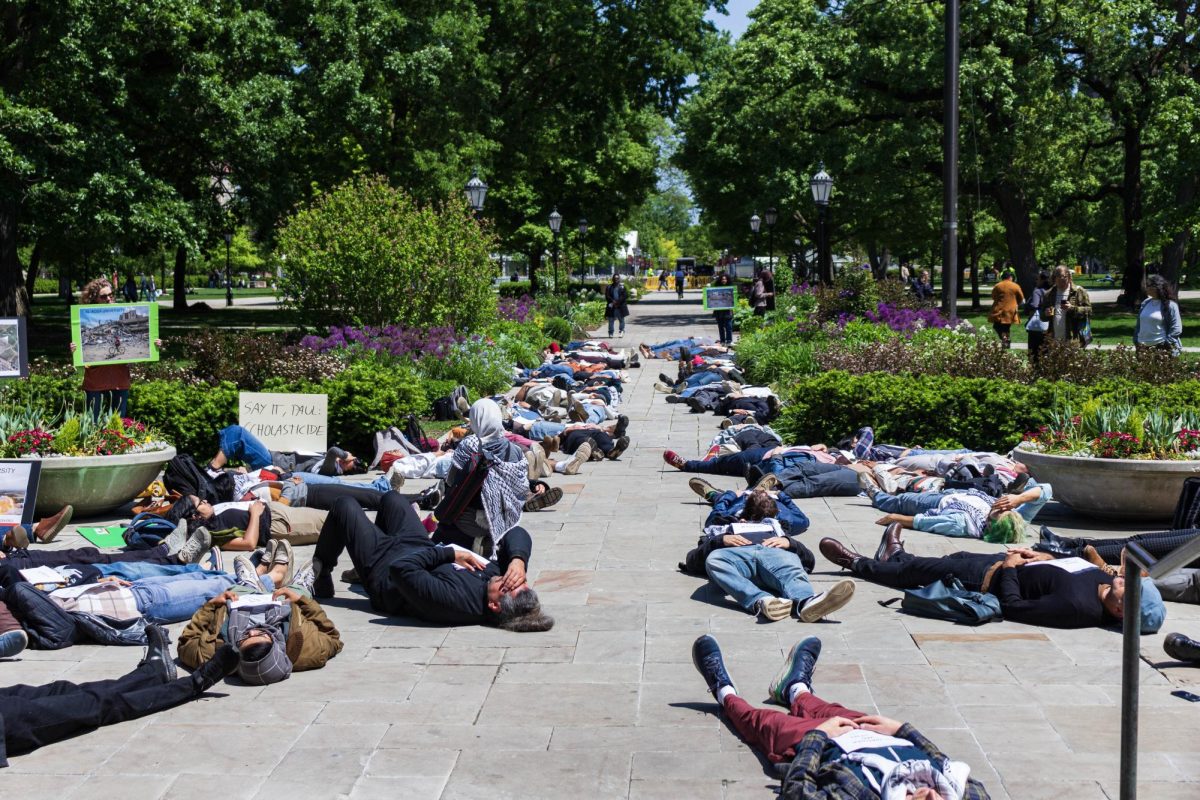

GSU Hostage / Nov 10, 2023 at 12:58 am
GSU-UE’s claims of fighting against discrimination are laughable. They, along with their UE parent, support BDS, which includes an effort to boycott Israeli academics. This is discrimination based on national origin, and a union promoting such policies cannot represent its members in good faith. It’s time we voted to decertify them.